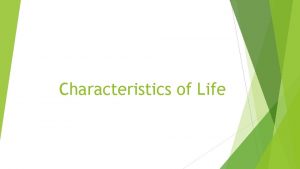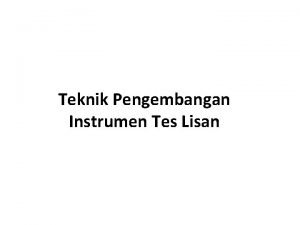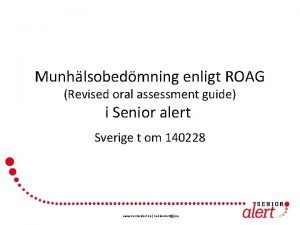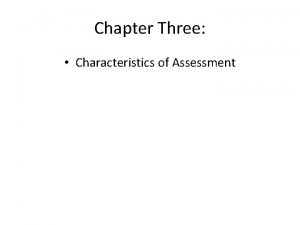Chapter Nine Oral Assessment General characteristics of oral





- Slides: 5

Chapter Nine: • Oral Assessment: • General characteristics of oral assessment: • The following characteristics distinguish oral tests: • 1. They are very time-consuming. • 2. They are integrative tests. • 3. They are on the whole subjectively scored. • 4. There are serious doubts about their reliability. • 5. They are considered valid tests.

The Three Phases of Oral Assessment: • 1. Warm up – to make acquaintance of each student and encourage him to perform well by starting asking him some social questions about his health and studies and the like. • 2. Main Task – to present some tasks to the student and assess his oral ability to comprehend and respond in English. • 3. Round Up – to tie up and end by encouraging the student to contribute his own individual views on the topics discussed and giving him the impression that the interview was a pleasant experience for both him and the examiner.

Methods of Oral Assessment: • Tests can be divided into three categories: • 1. Direct speaking tests such as the oral interview • 2. Indirect tests such as the paper and pencil tests of pronunciation and listening comprehension • 3. Semi – direct tests such as the highly structured speech samples by means of visual, recorded or printed stimuli.

Techniques for Assessing Oral Skills: • The activities of the dialogue, general conversation, reading and pronunciation can be assessed by the following techniques: • 1. The dialogue (teacher/student or student/student) • 2. Interview • 3. Picture-based questions • 4. Situations • 5. A short passage for reading aloud • 6. Sound discrimination and sound production

Criteria for Oral Assessment: • 1. Accuracy: The level of accuracy in grammar, vocabulary and pronunciation • 2. Appropriacy: The use of language broadly appropriate to what the speaker means to say. • 3. Fluency: The ease and speed in speaking








